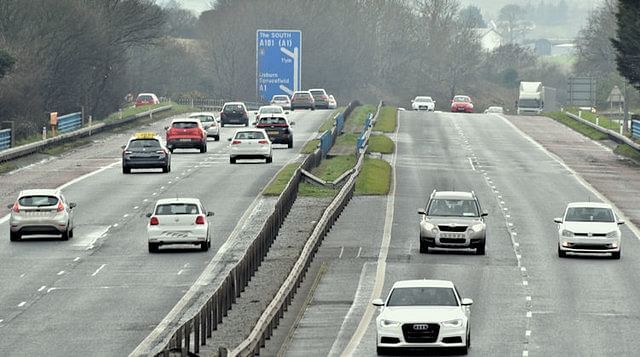IRF recommends implementation of intelligent transport system on Yamuna expressway
The international road safety body has stated that 'human error' mostly negligent driving is the leading cause for accidents on the Yamnua expressway.
The global voluntary body working towards establishing a safe and sustainable road transport infrastructure, International Road Federation (IRF), today recommended implementation of an intelligent transport system (ITS) on the Yamuna expressway, according to PTI.
"The driving condition on Mumbai-Pune expressway and Noida-Agra expressway are different than other roads. For safe driving, ITS along with strict enforcement of speed has to be implemented. A pre-warning about weather condition road and driving conditions should be provided to drivers in advance by the road concessionaire," said the global body in a statement.
IRF has stated that most of the road users are not aware about concrete construction of Yamuna Highway. It further said that vehicles on such surface need to have a proper tyre condition that needs to be checked along with other factors that includes weather and visibility.

A Well-planned Highway (Credits: Geograph.ie)
K K Kapila, chairman, IRF, said: “Various studies conducted by government and non-government agencies have shown that 'human error' mostly negligent driving is the main reason for accidents on the expressway. Drivers ramming their vehicles into other vehicle at high speed, wrong over-taking and losing control over vehicles after feeling drowsy and fatigued are among the main reasons for the accidents."
"For the road safety measure part Intelligent Transport system (ITS) along with strict enforcement of speed has to be implemented. A pre-warning about weather condition road and driving conditions should be provided to drivers in advance by the road concessionaire," he added.
The road safety body stated that the installation of Intelligent Traffic Management System, involving speed cameras and digital warning boards on both the expressways would go a long way in improving safety standards. The system is a common practice followed by developed countries on their major highways. This includes setting up of high-speed cameras at chronic locations on the expressway.
RELATED ARTICLES
Bajaj Auto launches new Chetak 3503 at Rs 110,000
The Chetak 3503, with a claimed range of 155km, 63kph top speed and a slower charging time than its 35 Series siblings, ...
Hyundai walks the eco talk with biogas plant, material recovery plant in Gurugram
Operational since October 2022, the facility targets sustainable waste management in Gurugram by undertaking scientific ...
Rajiv Bajaj reappointed MD and CEO of Bajaj Auto for five-year term
Bajaj Auto’s Board of Directors has approved the re-appointment of Rajiv Bajaj as the company’s MD and CEO for another f...






 By Autocar Professional Bureau
By Autocar Professional Bureau
 20 Mar 2018
20 Mar 2018
 5337 Views
5337 Views









